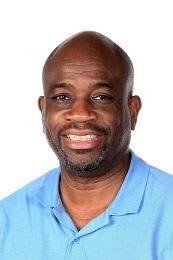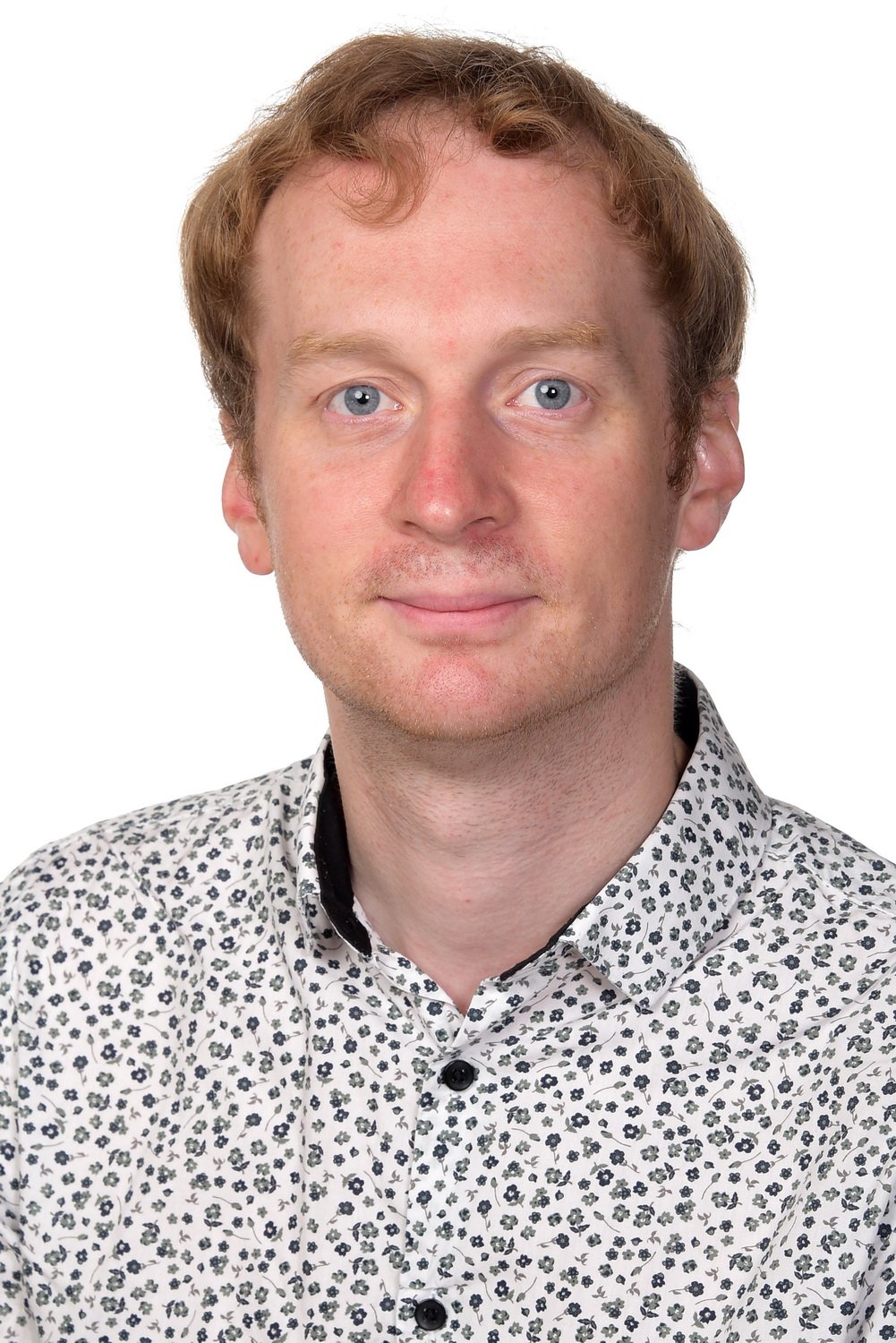Listen to our Experts in Modern Education
Welcome to Kids Gone Global
A podcast about international education, global citizenship, and the future of learning.
Kids Gone Global, from the International School of Hamburg, explores how international schools prepare students for a fast-changing world. Hosted by Sarah Reich, Director of Community Relations at ISH, the podcast highlights the people and practices shaping modern global education.
Our first series examined innovative learning pathways, from play-based and digital learning to the arts and the outdoors.
The new series brings you real stories from teachers, school leaders, and students responding to global challenges in real time.
Together, we tackle the big questions:
How do schools stay grounded amid uncertainty?
How do we prepare young people for an unpredictable future?
And what does true global citizenship look like today?
If you’re curious about education innovation and the future of international schooling, you’re in the right place. Join us and let’s explore what learning can be.
Andre Berry, Josh Arnold, Nils Hahnheiser, André-Karl Belair, Seth Cannon
Helping teenage boys find purpose and belonging
Nayeli and Vilasani Birkel
Beyond the Stage: What theater teaches us
James Knight
.png)
Helping teenage boys find purpose and belonging
Andre Berry, Josh Arnold, Nils Hahnheiser, André-Karl Belair, Seth Cannon
Andre Berry
Vice Principal, International School of Hamburg:
Andre Berry is Vice Principal of the Secondary School at the International School of Hamburg and a globally experienced educational leader committed to equity, accountability, and character development. Born and raised in Philadelphia, his calling to teach began early — during the 1982 teachers’ strike, he helped neighborhood children with math while his mother taught reading and writing. That formative experience shaped a lifelong commitment to education and mentorship.
Andre holds a BA in Elementary Education from Saint Augustine’s University and a Master’s in Educational Leadership from Concordia University. He has also completed professional training at Harvard University, Relay Graduate School of Education, and the International Baccalaureate. Throughout his career, he has taught and led in diverse school communities across the United States, the Middle East, and China, working within multiple curricula, including the IB framework.
As a university student, Andre founded the Genesis Tutorial Program, a nonprofit initiative dedicated to mentoring students who struggle academically — a commitment he continues today as an educational consultant supporting schools in building inclusive, high-performing systems.
At ISH, Andre is focused on strengthening communication, raising academic outcomes, and cultivating environments where boys feel both challenged and supported. He is currently launching the IMPACT initiative (Inspiring Men to Pursue Accountable Citizenship and Tomorrow’s Leadership), a structured leadership program designed to guide boys in Grades 6 and 7 toward accountability, purpose, and positive citizenship. He is also leading professional development efforts to help teachers and the wider school community better understand how to communicate intentionally and effectively with teenage boys.
Andre’s work is grounded in a simple but powerful belief: when schools build systems of trust, structure, and high expectations, boys rise to meet them. This is the message he wants to bring to this podcast episode.
Josh Arnold
DP Biology & MYP Sciences Teacher, International School of Hamburg:
Josh Arnold is a science and mathematics educator with over two decades of experience teaching across international and U.S. school systems. Currently a DP Biology and MYP Sciences teacher at the International School of Hamburg, Josh has worked in diverse educational settings including Hong Kong, Latvia, and the United States, teaching both Diploma Programme and Middle Years Programme students. Throughout his career, Josh has specialized in building dynamic, differentiated classrooms that foster inquiry, engagement, and student agency. His experience includes working in highly diverse communities and designing integrated math and science programs that support students across varying learning profiles. Beyond the classroom, Josh has coached American football, wrestling, basketball, and middle school boys’ teams— experiences that deeply inform his perspective on how boys build confidence, identity, and belonging through structured challenge and mentorship. He has also founded student clubs and served in leadership roles within science departments.
Josh brings to this episode a relationship-first approach grounded in respect, clarity, and high expectations — and a belief that boys thrive when adults combine consistency with genuine investment.
Nils Hahnheiser
Teacher of PHE in Secondary and Junior School, Life Skills Teacher & Sports Coach, International School of Hamburg:
Nils Hahnheiser is a German educator and sports coach at the International School of Hamburg, but also has teaching experience at state schools, as a trainer instructor in multiple sports associations, and as a lecturer in the Department of Sports Science at the University of Hamburg. Working both in the classroom and on the sports field, he brings a holistic approach to the development of young men — one that integrates discipline, teamwork, resilience, and physical well-being.
Through coaching and teaching, Nils emphasizes structure, responsibility, and collective effort. He sees sport not simply as competition, but as a powerful arena for character formation, leadership, empathy and belonging. His work reflects a belief that boys thrive when expectations are clear, effort is recognized, and accountability is paired with encouragement.
Andre-Karl Belair

Career Counselor & Life Skills Teacher, International School of Hamburg:
Andre-Karl Belair is a Career Counselor and Life Skills Teacher at the International School of Hamburg, where he supports students as they navigate adolescence, identity, and future pathways. With more than a decade of experience in international education and a background in psychology and counseling, Karl brings both structure and empathy to his work with middle and secondary school students.
In his role, he helps students develop self-awareness, emotional literacy, and practical life skills that support both academic and personal growth.
He has been co-designing and delivering Social Emotional Learning (SEL) programming aligned with IB frameworks, and works collaboratively with colleagues to create environments and opportunities where students can grow and develop to their full potential.
Karl’s approach is grounded in growth mindset principles and solution-focused strategies, concretely teaching all students, and boys, how to find their voice, set goals and build confidence to act - during the often turbulent middle school years.
Seth Cannon

Instructor, Mentor & Founder of Cub Scouts 808:
Seth Cannon is an educator, mentor, and parent in the International School of Hamburg community. With years of experience teaching and mentoring young adults in structured leadership environments, Seth has worked as an instructor at a U.S. service academy, guiding cadets through academic study, character development, and the transition into responsible leadership roles.
His teaching philosophy emphasizes presence, accountability, and personal investment — building trust with young men by creating space for real conversations about identity, purpose, relationships, and responsibility. He believes that discipline is most effective when paired with connection, and that young men rise to high expectations when they feel known and respected.
In Hamburg, Seth founded Cub Scouts 808, creating a community-based program where boys are given meaningful responsibility, learn practical skills, and experience teamwork through shared challenge. Through scouting and mentorship, he focuses on helping boys feel needed, trusted, and capable — key ingredients, in his view, for developing confident and compassionate young men.
%20(1).png)
Beyond the Stage: What theater teaches us
Nayeli and Vilasani Birkel
Vilasani (Grade 8) and Nayeli (Grade 11) are two students at the International School of Hamburg who found a shared sense of purpose and creativity through school theatre. With American and German backgrounds, both are deeply engaged in the ISH community and committed to their academic journeys — Vilasani as a 13-year-old in Grade 8, and Nayeli as a Grade 11 student preparing for the International Baccalaureate.
-1.jpeg)
James Knight
Exploring the IB Career-related Programs
.jpg)
%20(4).png)

.jpg)

Beyond the Stage: What Theatre Teaches Us
In this episode of Kids Gone Global, we step into the world of school theatre and explore how the arts help students discover confidence, creativity, and voice.
Having first taken the stage together in last year’s production of A Midsummer Night’s Dream, Nayeli and Vilasani returned to the spotlight this year for ALICE, drawn by the intensity, collaboration, and joy that theatre brings. For Vilasani, the production became a space to explore creativity and self-expression beyond the classroom. For Nayeli, it offered a meaningful balance to the demands of senior school: a place to recharge while continuing to challenge herself artistically.
As rehearsals unfolded, both students embraced the commitment the production required, learning to manage time, embody complex characters, and work closely with a diverse cast united by a shared purpose. Their reflections reveal how theatre nurtures resilience, builds connection, and helps students see themselves as more than just learners working toward grades.
In this podcast episode, Vilasani and Nayeli share what it means to choose creativity, grow through collaboration, and find confidence through the arts.
ALICE runs from February 10 to 12, 2026.
For more information about the production, visit:
👉 https://info.ishamburg.org/alice
Navigating Middle School in the Age of AI: Insights from the MYP Program
In this episode of Kids Gone Global, host Sarah Reich speaks with Jackie Van der Steege Middle Years Programme Coordinator and Design Teacher at the International School of Hamburg (ISH), to discuss the unique challenges faced by today's middle schoolers. As students navigate a world dominated by smartphones, social media, and artificial intelligence, the IB Middle Years Program (MYP) offers a supportive and adaptive educational framework. Jackie shares her personal journey into international education, her passion for middle school learners, and how design and the MYP curriculum prepare students for real-world challenges. They delve into the impacts of technology on young minds, the importance of critical and creative thinking, and the role of AI in modern education. This conversation also highlights how the MYP fosters lifelong learning, ethical use of AI, and the development of resilient and compassionate global citizens.
Further reading:
- Stephen Covey: 7 Habits Of Highly Effective Teenagers,
- Vivien Foster: The Teens Self-Regulation Workbook: Empowering Teenagers to Understand, Handle and Master Their Emotions With Success Through CBT Exercises and Coping Strategies
- Jonathan McKee: The Teen's Guide to Social Media... & Mobile Devices: 21 Tips to Wise Posting in an Insecure World
- Lily Templar (Author), Davis Templar: Exploring The Impact of Digital Devices on Teen Sleep Patterns and Mental Health
- Ruth E. Van Reken (Author), Michael V. Pollock (Author), David C. Pollock: Third Culture Kids 3rd Edition: Growing up among worlds
- James Windell: Six Steps to an Emotionally Intelligent Teenager: Teaching Social Skills to Your Teen
.png?width=1200&length=1200&name=1%20(6).png)
In this episode of Kids Gone Global, we discuss the International Baccalaureate (IB) Career-related Programme (CP).
This lesser-known alternative to the IB Diploma Programme is designed for students who wish to blend academic learning with real-world career skills. The program, which is offered in over 400 schools globally, has a promising track record, including a 100% pass rate at the International School of Hamburg since its adoption in 2019.
Special guest James Knight, a 2023 IB CP alum and current student at the London Academy of Dramatic Arts, shares his journey from ISH to a developing career in technical theater. He discusses how the CP provided a flexible framework that allowed him to combine subjects relevant to his career interests while gaining practical skills through modules like personal professional skills and service learning. Knight also emphasizes the importance of cultural sensibility, leadership, and ethical understanding, which were integral parts of his CP experience. The podcast provides a comprehensive overview of the academic and practical components of the CP, its benefits for students with clear career goals, and advice for navigating this rigorous yet rewarding program.
Further Reading:
- https://www.ibo.org/programmes/career-related-programme/
%20(1).png?width=1200&length=1200&name=ISH%20Podcast_YTthumb_1280x720_EP8%20(1)%20(1).png)
Embracing AI in Education: A Conversation with Dr. Nneka Johnson
In this episode of Kids Gone Global, host Sarah Reich sits down with Dr. Nneka Johnson, a leading voice on innovative educational technologies, to discuss the integration of generative AI like ChatGPT into schools. They explore how educators and administrators are responding to this fast-changing technological frontier. Dr. Johnson recounts her background in design thinking and her journey into AI, highlighting its potential to transform learning while acknowledging the associated challenges such as privacy risks, data bias, and the importance of critical thinking. She advises schools to focus on foundational understanding of generative AI, including prompt engineering and the creation of AI policy labs, and encourages parents to engage with these technologies to support their children's learning.
Further reading:
In this episode Ana Mara Leppink, a Dutch-German national who graduated in 2023 and is now a student at Harvard University, and Navin Proff, a German student set to begin his studies at Yale University share with us how they navigated the international school and beyond. They discuss their diverse experiences with the International Baccalaureate (IB) curriculum at ISH, detailing how it prepared them for university and shaped their personal development.
Ana-Mara and Navin highlight the rigorous academic challenges and the broad curricula of the IB, including the extended essay and Theory of Knowledge (TOK) components, which they believe equipped them well for higher education. Beyond academics, they also share how engaging in extracurricular activities like sports teams, student council, and various clubs contributed to their growth, leadership skills, and sense of community. The alumni emphasize the significant support they received from the school's faculty, particularly in terms of college applications, and reflect on the lasting impact of ISH's culturally diverse environment on their perspectives and personal growth. They conclude with advice for current and prospective students and parents on making the most of their time at ISH, reinforcing the value of taking on challenges, seeking support, and immersing oneself in the vibrant school community.
Further Reading:
- Proff, Navin: "Telosismus: Genesis und Vollendung des Menschen", 2023
In this episode, we delve into the critical role of arts in education with Adrian More, an award-winning pianist, composer, stage director and Head of the Arts department at the International School of Hamburg.
Adrian shares insights from his journey and student success stories, highlighting the transformative impacts of arts on mental resilience and self-belief as well as discipline and critical thinking. He addresses challenges in integrating arts into the education system and presents compelling data supporting the positive influence of a robust arts program on students' overall performance.
Adrian also explores the potential and opportunities presented by AI in the creative landscape and provides valuable advice for educators and parents to nurture creativity and artistic expression in students.
This discussion underscores the arts' unique capacity to foster individuality and build essential social skills for modern citizens.
Further Reading:
How the Arts Develops your brain
Learning in and through the Arts
Learning in and Through the Arts: The Question of Transfer
A Study into the Effects of Art Education on Children at the Socialisation Process
Interdisciplinary working practices: can creative dance improve math?

This episode of Kids Gone Global, "Data Driven Teaching and Learning in Early Education" Tracy Rabbitts, Assistant Principal at the International School of Hamburg (ISH), shares her insights into utilizing data to enhance teaching practices.
Tracy's journey as an educator began in England, where she recognized the importance of assessing student learning. Upon transitioning to ISH, Tracy delved deeper into data analysis to understand student needs better. She explains the data-wise process implemented at ISH, which involves setting specific learning goals based on data analysis and implementing targeted teaching strategies.
Through concrete examples, Tracy demonstrates how ISH uses data analysis to inform lesson planning, support continual growth in student learning, and identify trends in student performance. She emphasizes the importance of collaboration among educators and the involvement of parents in supporting students' learning journeys.
Overall, the episode highlights the transformative role of data analytics in education, empowering educators to tailor instruction, foster critical thinking, and promote student success through personalized learning experiences.
Reading List:
https://datawise.gse.harvard.edu/ Data Wise process
https://www.edutopia.org/blog/using-student-data-inform-teaching-rebecca-alber
Edutopia - 3 ways student data can inform your teaching

In this episode 'The Power of Play-based learning,' Dr. Suzan Weishof explains how unstructured play is crucial for developing social skills, negotiation skills, and problem-solving abilities. Based on these important findings, Suzan describes how the International School of Hamburg incorporates play-based learning into its program and its after school care offer. She explains how play assists teachers in meeting the individual needs of each child. The interview concludes with a discussion about the decline of unstructured play in children's lives and the role of parents in encouraging learner agency by providing time, space, and open-ended materials for their children's play.
Reading List:
- Axline, V. M. (1969). Dibs: In search of self (Vol. 6109). Mansion.
- Danger, S. (2003). Adaptive doll play: Helping children cope with change. International Journal of Play Therapy, 12(1), 105
- Samuelsson, I. & Johansson, E. (2007). Play and learning—inseparable dimensions in preschool practice. Published online: 25 Jan 2007 https://www.tandfonline.com/doi/full/10.1080/0300443042000302654?scroll=top&needAccess=true
- Cohen, L. (2009). Playful Parenting. Random House.
- Landreth, G. L. (2012). Play therapy: The art of the relationship. Routledge.
- Weishof, S. E. (2019). Play and speech therapy in schools: Toward a model of interprofessional collaborative practice. In Early Childhood Development: Concepts, Methodologies, Tools, and Applications (pp. 186-216). IGI Global
- Whitebread, D., Basilio, M., Kuvalja, M., & Verma, M. (2012). The importance of play. University of Cambridge.
- KARAOĞLU, S. (2020). The importance of play in pedagogy in curriculum delivery and play provision for young children’s learning and development. Erciyes Journal of Education, 4(2), 18-34.
- Prins, J., van der Wilt, F., van Santen, S. & van der Veen, C. (2022). The importance of play in natural environments for children’s language development: an explorative study in early childhood education. Published online: 11 Nov 2022 https://www.tandfonline.com/doi/full/10.1080/09669760.2022.2144147
- Bongiorno, L. (2023). Ten Things Every Parent Should Know About Play. Published online https://www.naeyc.org/our-work/families/10-things-every-parent-play

In this episode, we explore those fundamental skills that young people can acquire outside the traditional classroom and school campus, particularly in the great outdoors.
Our guest, Michael Kent, a Geography and Environmental Science teacher at the International School of Hamburg, will introduce the Duke of Edinburgh International Award program he opened up in Hamburg. He'll discuss how these experiences in nature and broader society contribute to enriching essential life skills and reinforce what students learn in school.
So tune in for a breath of fresh air.
Reading List:
Good research on the impacts of the program in the UK: https://pearsfoundation.org.uk/wp-content/uploads/2018/06/DofE_Impact-exec-summary.pdf
Good resources and tools for students doing it in Germany: https://duke-award.de/en/resources-and-tools/

Education Technology Integration Coach, Laura Jakubowski, shares insights on teaching digital citizenship to students. From an early age, students are taught to navigate the online world, use technology responsibly, critically, and fluently. The curriculum includes teaching how to remain safe online, how to add value to their lives and the society, and emphasizes on maintaining media balance and data protection. Laura discusses how the program helps students to grapple with complex concepts such as digital footprint and media literacy. She also sheds light on addressing cyberbullying from various angles. A significant point students are taught is technology should be used to make meaningful connections.
Reading List:
-
Teen Tips on Social Media by the New York Times
-
Setting clear family rules with Psychology Today
-
This family media use plan from the American Academy of Pediatrics
-
Common Sense Media on Privacy and Internet Safety: https://www.commonsensemedia.org/articles/privacy-and-internet-safety
-
Personalised Family Digital Toolkit: http://internetmatters.org/digital-family-toolkit/

In this first episode, we delve into the core of the matter: what is the purpose of school today? What skills do students need to learn for their future and how do schools go about teaching them?
Our guest, Dr. Alan Knobloch, the Head of the International School of Hamburg, will argue that to best prepare citizens of the future who can thrive in an ever-changing global environment, schools should aim to serve the needs of the child as a whole, develop students’ knowledge and their talents, but also, and increasingly, their socio-emotional wellbeing and resilience. How do they go about this? Tune into this podcast to learn more.
Reading List:
- A whole new mind : why right-brainers will rule the future - Daniel H. Pink
- OECD Future of Education and Skills 2030
- One Foot in the Future by Will Richardson

In this episode of Kids Gone Global, we discuss the ongoing challenges of modern masculinity with five educators from the International School of Hamburg. Panelists include Assistant Principal Andre Berry, teacher Josh Arnold, German teacher and sports coach Nils Hahnheiser, career counselor and life skills teacher André-Karl Belair, and scout leader and parent Seth Gannon. They explore how boys often disengage academically and emotionally, and the crucial role schools can play in providing structure, mentorship, and belonging. Highlighting the need for boys to feel needed, connected, and accountable, the discussion emphasizes the importance of real-life interactions and leadership development in and around school life to help boys grow into balanced and compassionate young men.
Reading list:
Scott Galloway : Notes about Being a Man, How to Address the Masculinity Crisis, Build Mental Health and Raise Good Sons, 2025
Mark Brackett: Dealing with Feelings, Use Your Emotions to Create the Life You Want, 2025
Richard V. Reeves: Of Boys and Men, Why the Modern Male is Struggling, Why it matters, and What to Do About It, 2023
Jonathan Haidt: The Anxious Generation, 2024



